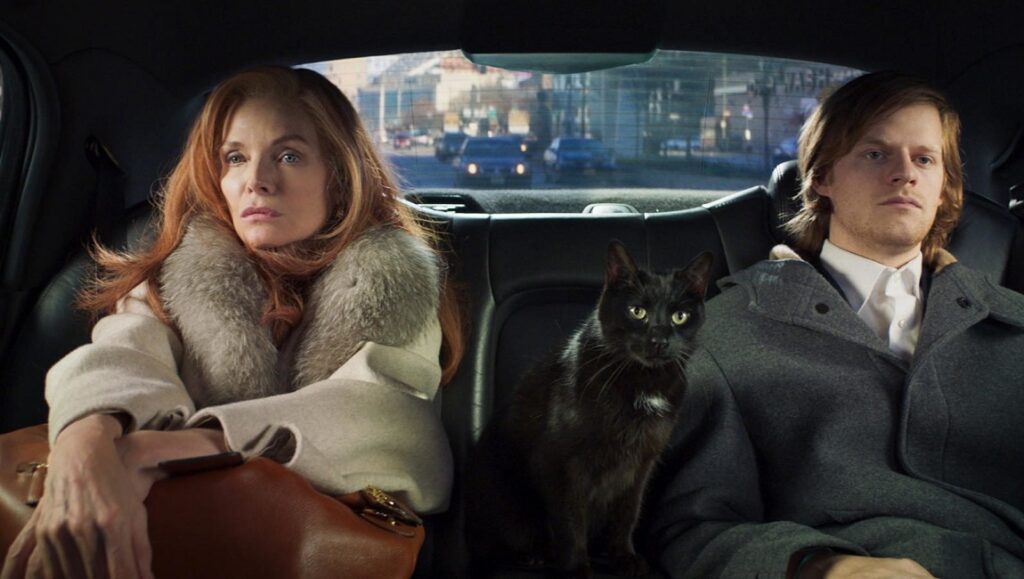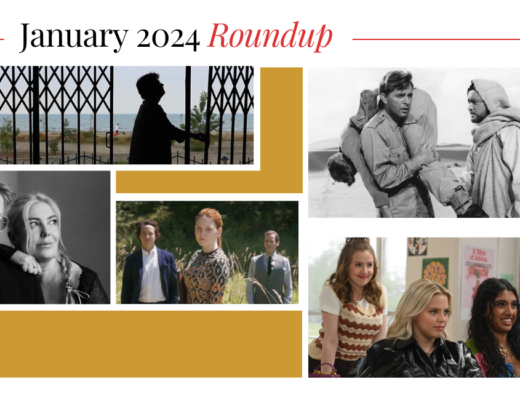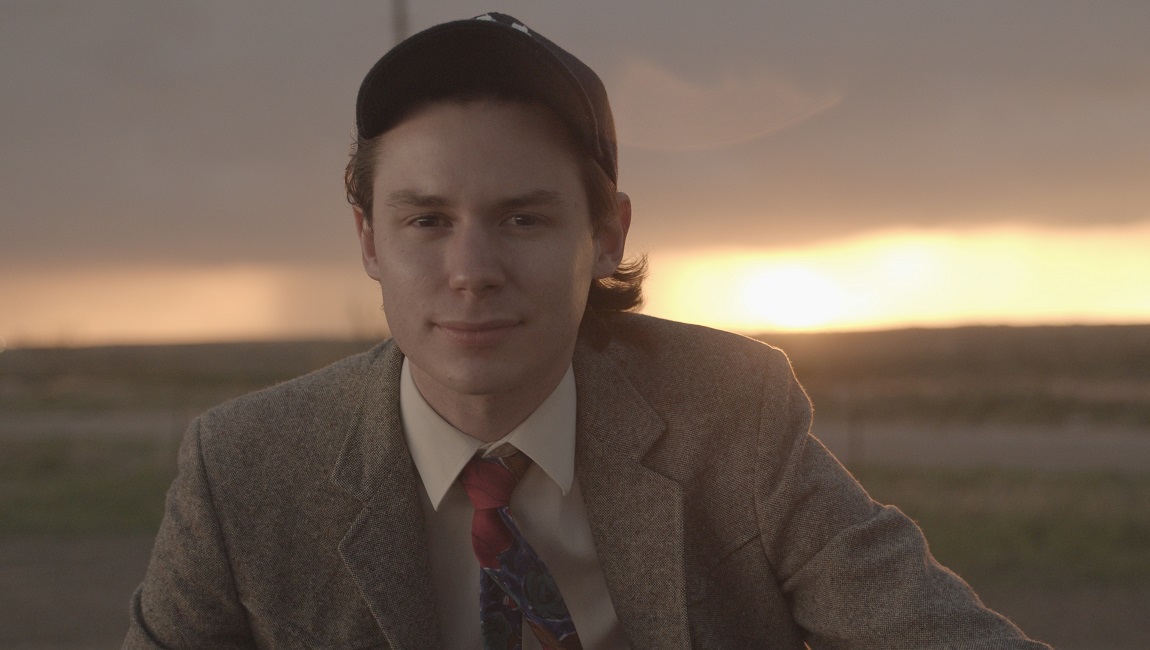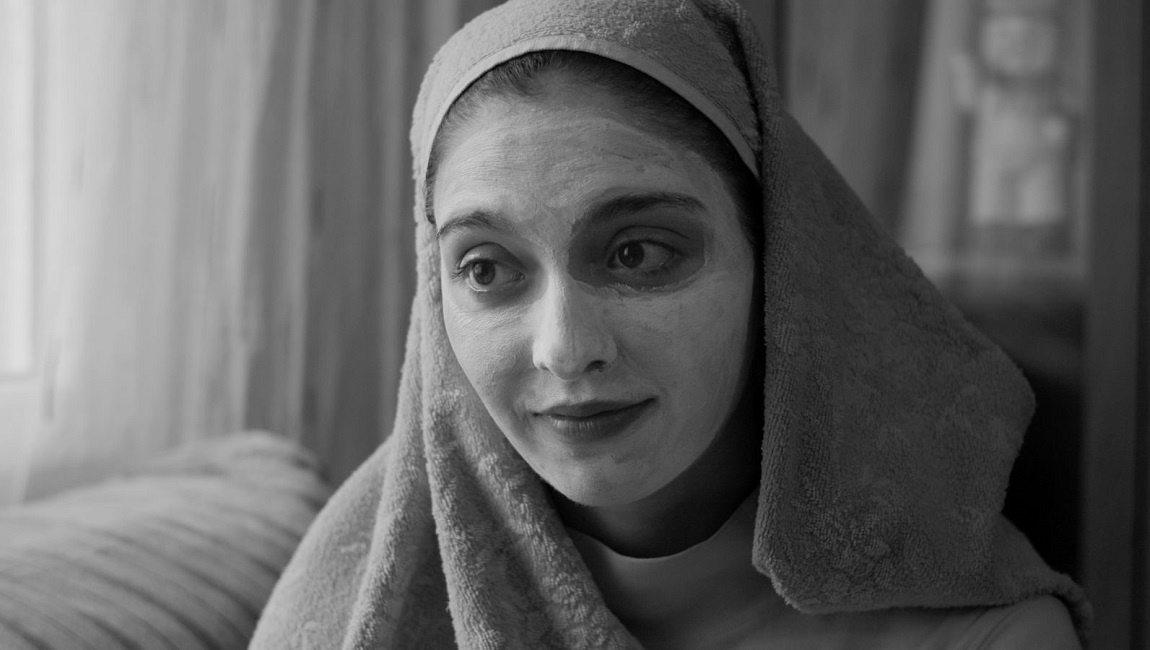On the Rocks
“It must be very nice to be you.” That’s what Laura (Rashida Jones) says to her gadfly dad Felix (Bill Murray) late in Sofia Coppola’s latest tonic. He’s just sweet-talked his way out of a parking ticket for what’s probably the umpteenth time, and she’s a bit put out by his deployment of privilege. Wait, let’s start at the beginning. On the Rocks starts with Laura’s marriage to Dean (Marlon Wayans), and it’s a quintessential dreamy Sofia Coppola party scene, luxuriantly stylish and full of possibility. Cut to (literally) some years later, and here’s Laura picking up toys around a couple of kids, while her husband is constantly away on business.
She’s a successful writer, he’s some sort of world-traveling business guy. The money seems to be good; this family seems to enjoy all the trappings of affluence and privilege, but Laura’s unsatisfied. Mainly due to her suspicions that rarely-home Dean is stepping out on her with an assistant. So she unloads her frustrations on Felix, an extremely well-connected art dealer who seems to have never really fully matured into his old age. He still drives a flashy red vintage convertible, chases tail, flirts with waitresses, and spends lavishly. His life is full of accoutrement. Unsurprisingly Felix only encourages Laura’s suspicions, partly because he’s itching to take his girl on a little screwball adventure, but mostly because he’s the kind of sexist who insists that men are hardwired to cheat.
Coppola’s movies are frequently sort of hermetic dreams, but On the Rocks feels like the work of someone trying to understand all the ways that their bubble has been pierced by the simple daily work of life. You can look at it as a more settled-down version of the comeuppance delivered at the end of Marie Antoinette or The Bling Ring. And certainly the dissatisfied spouse on a semi-spiritual trip through the big city with a dry-witted gentleman bandit can’t help but recall Lost in Translation. But the closest comparison is really Somewhere. In contrast to that film’s decadent Los Angeles, Chateau Marmont setting, the New York City of On the Rocks is one of quiet nostalgia and warm comfort, though fittingly both films are stories of loyal (possibly to a fault) daughters contending with part-time dads. Felix’s talk of what men and women want echoes the young girl in Somewhere coming to grips with what she’s learning about what men expect of her and where she’s learning those expectations. Laura’s vague dissatisfaction with her marriage (but not just her marriage) is the same existential angst of the Hollywood star who just wants to dip out.
Coppola reconfigures all of these pet themes — and her open admission of the comfort of her privilege, here in the obvious semi-autobiography brought by Jones (daughter of Quincy) and Murray (totally playing into his persona as a superstar self-absorbed goof) — into a sort of sedate screwball comedy of errors. Missed opportunities and mistaken assumptions abound, as you’d expect, but the aim isn’t a raucous pace or a belly laugh. The jokes here are played for sympathy rather than irony, and who better to sympathize with these people than this cast and director? In the end, they’re all just more settled now. A little older, hopefully smarter, and probably not as cool as we used to be (well, except Murray). So when Laura side-eyes Felix’s patented traffic-cop schmoozing, of course he replies “I wouldn’t have it any other way.” Matt Lynch
Beginning
On its surface, Dea Kulumbegashvili’s debut, Beginning, immediately recalls Carlos Reygadas’s Silent Light. It’s an obvious connection, as both films are set within cloistered religious communities that rarely see representation on screen; Light takes place in a traditional Mennonite colony in Mexico while Beginning focuses on a Jehovah’s Witness missionary in an orthodox Christian village in the Georgian mountainside. But any deeper connections (excepting general tragic undertones) between the two quickly prove untenable: Kulumbegashvili’s film forgoes the prevailing (if measured) pathos that punctuates Reyagadas’s filmography in favor of a loose stylistic and temperamental fusion of Bela Tarr and Michael Haneke. In detailing the story of Yana (Ia Sukhitashvili), the wife of a missionary/pastor who enters into a kaleidoscopic spiral of doubt, discontent, resolve, and resignation, Kulumbegashvili both employs the heady, long-take slow cinema of Tarr and channels Haneke’s penchant for casual depictions of cruelty and violence — a rape takes places in long shot and set to silence, and the action blurs into the foliage and rock upon which the transgression is perpetrated — while embracing the distancing, Bressonian affect that informs both.
Beginning opens with a static shot — with the exception of a few slow pans, the film is almost exclusively composed of still frames — of a church auditorium. Clean white walls contrast with a right-angled, blood-red runner marking the walkway and congregants filter in from off-screen for a handful of minutes. Shortly, Yana’s husband David (Rati Oneli) begins his sermon on Abraham and his willingness to sacrifice Isaac, a pointed message which comes to inform the film’s entirety, before Kulumbegashvili unleashes a stunning sequence: the church’s doors are opened, an unseen presence pitches a bottle-bomb, fire erupts, and churchgoers hustle to put a pew through a window in order to escape. The scene cuts from licking flames to Yana, distraught and alone under the limbs of some proximal tree, the smoldering church still heard off-screen. It’s a directorial introduction like few in recent memory, and the visual confidence continues throughout. Immediately following this, as a postscript of sorts to the bravura opening, Kulumbegashvili shoots the church’s fiery incandescence through a doorframe; the camera slowly unfocuses into an impressionistic wash of color — the mountains’ twilight indigo in the background, steel-colored smoke rising from bright fire, and the dark verdant acreage in between – offering a moment of post-traumatic disassociation before the day’s tragedy racks into focus once more.
But nothing in Beginning is mere ostentation; the director remains assured of her vision and sidesteps familiar arthouse pratfalls by anchoring her human concerns to her visual expressions. Yana is a woman trapped by oppressive forces — religion, marriage, culture, police, patriarchy — and Kulumbegashvili accentuates this guiding context by shooting in claustrophobic 4:3 35mm. She utilizes the frame’s limitations to, yes, emphasize the confines of Yana’s world, but more impressively to lend a sense of expansiveness to her narrative’s widening gyre. Subjects populate the periphery, spilling into and out of compositions that can’t contain them, and conversations are frequently had between a person, fixed in frame, with an individual off-screen — the implication of life’s continuance, and thus Yana’s isolation, in what the camera fails to capture. The director elongates scenes, saturating them in quietude and stillness, to reinforce the suffocating inescapability of Yana’s circumstance, and often shoots her lead in shadow, a representative act of visual dehumanization. And in one of the film’s standout moments, one that inverts its themes of oppression, Yana lays her head upon a forest’s shed leaves, playing dead for a jarring period of time while her son waits off camera for her to interrupt her reprieve, end the pretense, and resume her role. And in this sense, Beginning plays like something of a narrative, emotional, and philosophical denouement to its early crescendo; Yana’s (d)evolution is an act of layering rather than transformation. There are other concerns at hand – the playacting demanded of both religion and marriage, the pain and pleasure of faith (both favored Reygadas themes) — and they are indeed given considerable weight, but Kulumbegashvili is primarily concerned with the phantasmagoric psychological fallout inflicted on the individual as the result of cultural, religious, and gender normatives. The result is something powerfully unique: Kulumbegashvili borrows from Haneke’s brutality, Reygadas’s delicate, gorgeously-rendered human dramas, and Tarr’s patient social portraits, but evinces a singular vision that synthesizes the best of all three — a deeply feeling portrait of a woman struggling against the inertia of her life, expressed with an unsettling air of detachment, and rendered with uncommon artistic confidence and balance. Luke Gorham
Red, White and Blue
Having now seen three of Steve McQueen’s five Small Axe films (the final two held hostage by Amazon until December), it’s easier to trace out the implied connections between these episodes/films and appreciate the filmmaker’s decision to group them together. In hindsight though, McQueen was never shy about what he saw as the throughline for this project. Titled in homage to the Bob Marley and The Wailers’ song of the same name, McQueen builds off of Marley’s metaphor for the music industry/social change (a small axe chopping away at a big tree), assembling a collection of stories that speak to the incremental nature of racial progress in the Western world.
Intended to air as the final entry in the series, Red, White and Blue stands out as a more concrete articulation of the project’s thesis than either Mangrove or Lovers Rock (the other two Small Axe films at NYFF). Set in the ’80s, this film is based on the life of Leroy Logan (John Boyega), a black Londoner and son of Jamaican immigrants who decided to leave behind a promising career in research science to pursue police work. This brings Logan into conflict with his father Kenneth (Steve Toussaint) who, as a small business owner, has endured years of violent harassment and knows the London police to be irredeemably racist. As justification, Leroy trots out that old, starry-eyed notion of changing the system from the inside, and an unimpressed Kenneth disowns his son. As a dramatic focal point, this intergenerational clash proves appropriately weighty, and McQueen and his co-screenwriter Courttia Newland expertly stack additional complications atop it. In fact, Red, White and Blue’s script is its biggest selling point, an accomplished act of classical dramatization akin to Asghar Farhadi’s contemporary (cinematic) morality plays. As is the case with those films, Red, White and Blue possesses a screenplay that elegantly outlines its interpersonal dynamics and personal histories, before infusing cultural dynamics, then social, etc.
McQueen and Newland never really let their characters off the hook (Leroy is indeed met with aggressive racism from his cop peers, Kenneth has to face the fact that his exceptionalist philosophy indirectly influenced his son’s interest in policing), but none of the Logan family is positioned as any more righteous than the other. This is a welcome grounding choice from a dramatic standpoint, but it’s disappointingly noncommittal in rejecting the police outright, having Boyega’s character come to understand the call for police abolition while still believing he can reform the institution. McQueen’s script concludes in a place where it’s unclear whether or not Leroy Logan returns to the police force, but in real life he most certainly did, working up until 2013. Mangrove similarly manipulated real history so as to fit into McQueen’s thematic vision, and one’s appreciation for these films will largely hinge on whether or not you think McQueen’s vision is worth these artistic liberties. And to some extent it is, as both the sprawl and scope of Small Axe are commendable. But the conclusions he offers by the time Red, White and Blue wraps, if incisive and deeply felt, hardly seem big enough to fit the format. M.G. Mailloux
French Exit
It takes truly talented people both in front of and behind the camera to make something as abysmal as French Exit, a misfire of epic proportions. Director Azazel Jacobs, while not exactly a household name, certainly showed promise with his previous features, including Terri and The Lovers; Patrick DeWitt, a critically acclaimed novelist, wrote the screenplay, an adaptation of his own award-winning 2018 book; the stacked cast includes Michelle Pfeiffer, Lucas Hedges, and Tracy Letts. Hell, there’s even a cat on hand to provide wide-eyed reaction shots whenever the film needs to goose its cuteness. It’s hard to place blame on any one specific individual here when everyone is clearly at fault, starting with a screenplay that steadfastly refuses to be cinematic, clinging to the page like a dryer sheet on a flannel shirt. It’s less of an adaptation that a rote transposition, seemingly little consideration given to the material’s fit within the film medium.
In adapting his story of a New York socialite (Pfeiffer) who flees to Paris with her somnambulant son (Hedges) after losing her deceased husband’s fortune, DeWitt seems to be under the impression that because his novel traffics in the alien ways of both the upper-class and the supernatural (don’t ask), his characters are allowed to speak like they literally stepped off the page. It’s an obnoxious affectation, done no favors by a cast who seizes the opportunity to give in to their worst instincts. Pfeiffer goes for caricature, all breathy sighs and dagger eyes, stretching out each syllable in every word to its breaking point; Hedges opts for zombie-mode; Letts seems happy just to be doing voiceover work as the cat, his screen time limited to that of a corpse. Yes, you read all of that correctly. They were clearly given no coherent direction by Jacobs, who is working in a key that can best be described as Wes Anderson minus the charm, wit, or visual creativity, crossed with Scoop-era Woody Allen.
In truth, it’s understandable that Jacobs is never able to fully get a handle on the material, what with characters that are nothing but a collection of quirks and the film’s endless supply of whiplash-inducing tonal shifts. How does one juggle a story that basically plays mental illness for laughs but also tries to wring genuine emotion from its portrait of an emotionally fucked-up family? As presented here, no one and nothing in this film is remotely relatable. Throw in a horny psychic, a frozen dildo, and a suicide note that lovingly details a homeless man’s penis, and the the the film officially rids itself of any semblance of coherence. Valerie Mahaffey, popping up as a clingy friend and neighbor, seems to be the only one who understands the absolute shitshow that she is in, giving a performance of such daftness that one can’t help but perk up a little whenever she arrives on screen. She and she alone is innocent; everyone else must atone for the sin that is French Exit. Mon Dieu. Steven Warner









